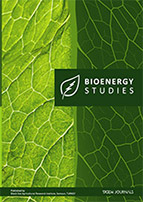Turkish Journal of Fisheries and Aquatic Sciences
2024, Vol 24, Num, 5 (Pages: TRJFAS24581)
Exploring the Role of Insects as Sustainable Feed in Aquaculture Nutrition and Enhancing Antioxidant Capacity, Growth and Immune Response
2 Tropical Feed Resources Research and Development Center (TROFREC), Department of Animal Science, Faculty of Agriculture, Khon Kaen University, Khon Kaen 40002, Thailand Malaysia
3 College of Veterinary Sciences, The University of Agriculture, Peshawar 2500, Peshawar, Pakistan
4 Faculty of Animal and Veterinary Science, Department of Basic Veterinary Science, Gomal University, Dera Ismail Khan, Pakistan
5 Faculty of Animal and Veterinary Science, Gomal University, Dera Ismail Khan, Pakistan
6 Institute of Microbiology, Faculty of Animal and Veterinary Science, Gomal University, Dera Ismail Khan, Pakistan DOI : 10.4194/TRJFAS24581 Viewed : 459 - Downloaded : 404 As the global demand for aquaculture products continues to rise, sustainable and efficient feed sources are crucial for the industry's growth. Insects have emerged as a promising alternative due to their high nutritional content, low environmental impact, and potential to alleviate overreliance on conventional feed ingredients. This abstract delves into the role of insects as sustainable feed in aquaculture, elucidating their benefits and challenges. Insects offer a rich source of fats, minerals, proteins, and vitamins that meet the dietary requirements of various aquatic species. Their rapid growth rates and ability to thrive on organic waste contribute to their eco-friendly nature, reducing the environmental burden associated with aqua-feed production. Notably, insects can be reared on various organic substrates, minimizing competition for arable land and reducing the demands on wild fish hoards utilized for fishmeal construction. However, integrating insects into aqua-feed presents certain hurdles. Standardized production methods, quality control, and regulatory frameworks need to be established to ensure consistent and safe insect-derived feed. Additionally, understanding the potential impacts of insect-based diets on fish health, growth, and product quality is vital. It is conclusion that the insects hold immense potential as a sustainable feed source for aquaculture, addressing nutritional demands while minimizing environmental impacts and addressing the challenges through collaborative researcher research, and eco-friendly aquaculture sector. Keywords : Antioxidant Capacity, Enhancing Growth, Insects meal, Immune Response, Sustainable Feed
















